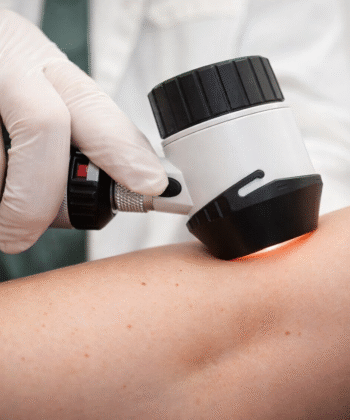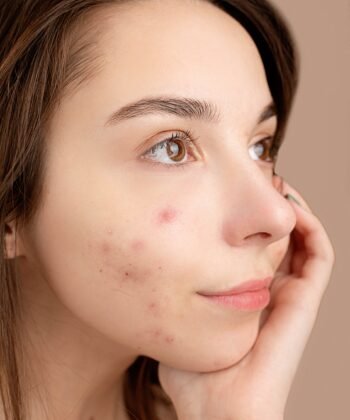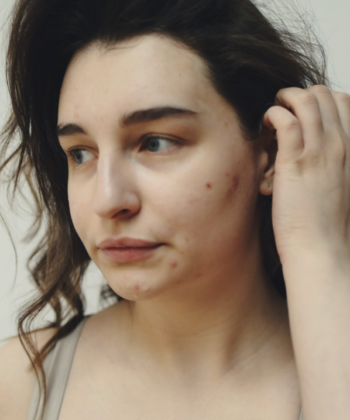What is a Consultant Dermatologist?
What is a Consultant Dermatologist?
Consultant Dermatologists specialise in the diagnosis and treatment of conditions that affect the skin, nails hair.

If you are concerned about a skin condition, it’s important to visit a consultant dermatologist at the earliest opportunity. Making an appointment with a consultant is simple. Either:
- book directly with The Dermatology Clinic
- or if your insurance company requires it, get GP referral
Visiting private consultants at The Dermatology Clinic means you will be in the hands of true professionals. Often, they will present you with a number of treatment options for your condition, and talk you through each one to give you all the information you need to make an informed decision. Our aim is to work as a team with you, providing you with the correct information to allow you to make the right choice of treatment for your skin.
Our dermatologists are vastly experienced in all areas of Dermatology and are qualified to diagnose and treat a large number of conditions, including children’s skin conditions.
View our ‘Conditions‘ section for a full list of services provide at the Dermatology Clinic.
As well as the high level of skill and knowledge possessed by our expert team, you will also be treated with the utmost care and understanding, so there’s no need to feel worried about making an appointment.
Professional qualification
To become a consultant dermatologists, doctors work for a minimum of four years in general medicine and pass postgraduate exams. Before then undertaking training as a specialist registrar in Dermatology. This takes an additional four years. They may also have trained in research or a certain speciality area to gain further expertise before coming a consultant dermatologist.
Consultant dermatologists have a vast working knowledge of basic medical sciences and due to both their training in general medicine and their consultant work, they are also familiar with other medical specialities. This is important because many skin conditions are associated with other, internal health problems.
Learn more about skin conditions

The Importance of Checking Your Moles
Protect yourself from melanoma with regular self-assessment. Learn the signs to look out for and when to see a dermatologist. Read more for essential insights.

BCC vs SCC
A skin cancer diagnosis raises immediate questions. If you've been diagnosed with basal cell carcinoma (BCC) or squamous cell carcinoma (SCC), you need clear information about your condition and treatment options.

Melanoma and Ultraviolet Light: What’s the Link?
According to Cancer Research UK, around 85% of melanomas in the UK are caused by too much ultraviolet radiation. The number of people being diagnosed with this type of cancer has increased and is now the 5th most common cancer in the UK.

The Truth About Acne
Acne is a debilitating disease that affects over 18 million people in the UK. A lot of people say it’s a teenage issue that you can grow out of, but it affects many people right through to their adult life and can completely take over people’s lives.

Pregnancy Acne: What Are the Causes?
Pregnancy acne, stemming from hormonal shifts, affects up to 43% of expectant mothers, often causing breakouts and discomfort. Learn about the causes, prevention tips, and expert solutions at The Dermatology Clinic London.

Acne in Teens and Young Adolescents
One of the reasons teenage acne flares is as a result of hormonal changes in the body that cause the glands under the skin to produce excess sebum. It is these hormones that play a major role in influencing how the sebaceous glands function.

Skin Allergies – Why they Happen and How to Take Care of Them
Allergies are the most common chronic disorder in the United Kingdom; it is estimated that around a quarter of brits will be affected by some kind of allergy during their lives, a number that is expected to increase exponentially going forward.

Why Does My Mole Itch?
Itching or pruritus is often a sign of dryness or irritation of the skin’s surface. As a result, our skin’s nerve endings, also known as pruriceptors, are stimulated.

The Impact of Diet on Acne: What You Eat Matters
Diet plays a critical factor in a person’s overall health and well-being. People with a healthy balanced diet tend to live longer and have a lower risk of developing serious health problems such as cardiovascular disease and type 2 diabetes.
What our patients say…
Dr Glass put me on a course of medication which was successful in treating this condition. I have now been happily discharged 🙂
Throughout my treatment, I found Dr Glass to be extremely conscientious, caring and thorough. He fully explained all the available treatment options to me and possible side effects. I felt I was properly informed.
He also explained to me that skin is very unpredictable and if I have a predisposition to skin allergies, then flare-ups could recur in the future. If this happens, I would have no hesitation in consulting with Dr Glass again, if need be. I would also have no hesitation in recommending him to others.
His knowledge, expertise and attention to detail, is not only reassuring but enables you to build trust and confidence going forward in whatever treatment path is required.
I have recommend him to family
and friends for diagnosis and treatment, as I believe Daniel is the leading consultant in his field for Northwest London.
When I saw Dr Glass in 2017, he diagnosed and treated my skin issue very swiftly. Within weeks I was looking well but mentally that boosted my confidence too.
I needed to see him again and I was not going anywhere else, as he was the right person to treat my skin condition again. Dr Glass once again diagnosed and treated my skin condition on a different issue very quickly and within 6-7 weeks, my skin feels new.
Thank you once again Dr Glass; I will not hesitate to recommend you to anyone seeking your services as I know they will be in the best care.




